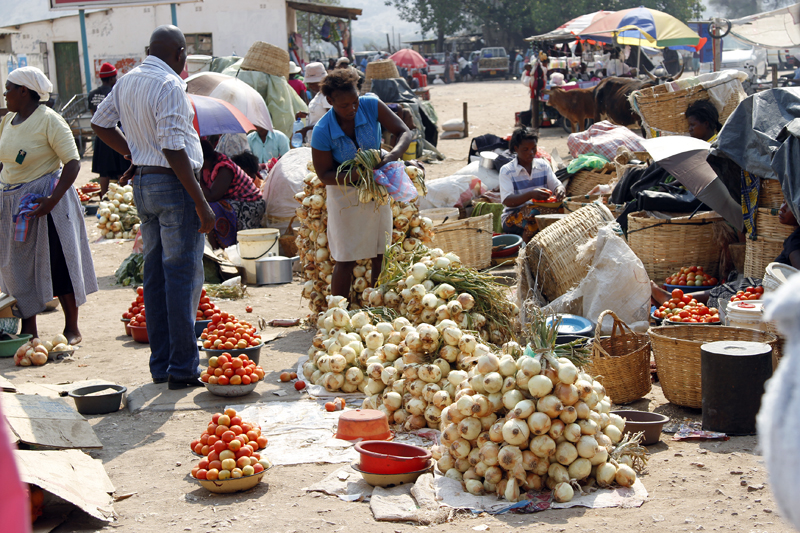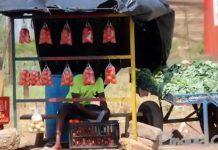VERENGAI Mhishi (41) sits absent minded as she tries to mute the sounds of her three children playing in the yard surrounding their one roomed cottage in the Avenues. She is contemplating where she will get money to buy food as her stocks are running low during the government imposed 21 day lock down.
Mhishi usually depends on her vending business to provide an income for her family but with her business being considered a non essential business, she has had to abandon her selling activities.
Although Mbare Musika which forms the hub of sells activity for farmers and informal traders in Harare has been reopened, some traders still fear a repeat of events in Sakubva were police intercepted trucks delivering farm produce and traders who were selling in the early hours of the morning which was in defiance of the instated trade ban for vegetable markets.
“I usually hoard veggies (sic) in Mbare but because of the stories I’ve heard about police beating up people who ignore the lockdown so I am too scared to go there and even if I do go, who will I sell to, I can no longer go and sell at my usual corner. Also my stock may rot since there aren’t many customers,” she laments.
Mhishi has resorted to selling non perishable wares such as cigarettes and corn snacks but they do not bring her much profit as compared to farm produce.
“I sell green vegetables at 10 ZWD and on a good day I could make up to 140 ZWD and that us excluding money from tomatoes and onions,” she reminisces “now I hardly have enough money to survive the lockdown” as she reveals that she is now earning a paltry 22 ZWD from her lockdown sales.
Women who constitute the majority of traders specializing in fruit and vegetable trade have been hard hit by the lockdown which has rendered them immobile and subjected them to poverty.
The Zimbabwe Chamber of Informal Traders (ZCIHT) stated 70% of Informal Traders are women and thus exposes them to more hardships than their male counterparts.
Some traders have devised ways of selling their wares either at night though for Mhishi’s case she has been fortunate enough to gain customers from apartment block which occupies the same space as her cottage. This is a loophole which has allowed some traders to continue sales in limited quantities long after shops have closed.
Most shops in Harare have been operating for six hours a day instead of the usual 12 hours.
The government promised to avail a USD 600 million stimulus package to affected small to medium enterprises vendors included but for vendors like Mhishi, they are yet to receive their allocation. She is also unaware of if the logistics of how the cushioning allowance is to be apportioned.
Mhishi is also not a registered member of any organisation that oversee the vendors’ welfare and she feels this might disqualify her from receiving an allowance.
It remains to be seen whether the government will allow informal traders to operate full time since they are also a key part of the agriculture sector which has been deemed an essential service by the government.






